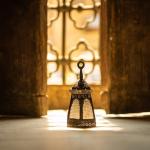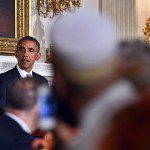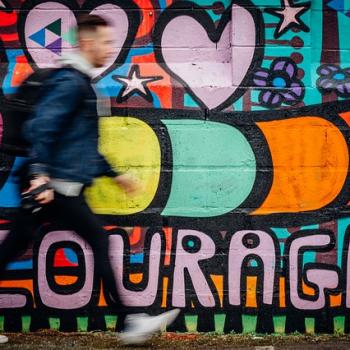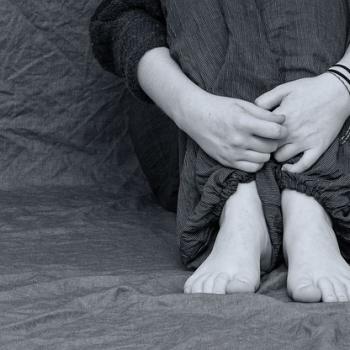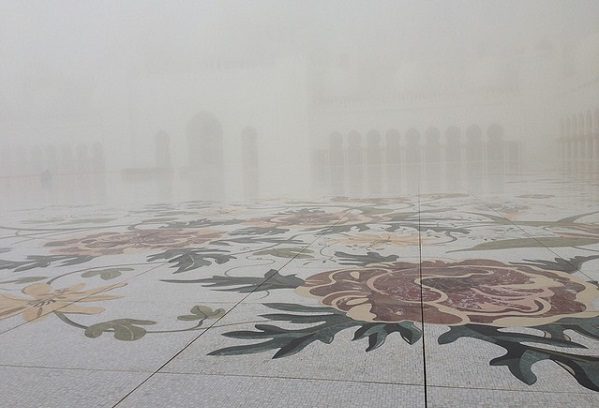
This is Day 22 of the #30Days30Writers Ramadan series.
A quarter of the world’s population, or around 1.8 billion Muslims around the world, are currently in a time of Ramadan. In Ramadan, we’re fasting during the day from sun up to sun down. In Chicago where I live, this means that from around 3:45 a.m. to around 8:15 p.m., we are refraining from water (or any liquid), food, sex and trying to be more mindful of our bad habits, our speech and our actions.
The month is an opportunity to become closer to God through fasting. In the Quran, it says “O ye who believe! Fasting is prescribed to you as it was prescribed to those before you, that ye may (learn) self-restraint.” (2:183) I like the translations that use the term “prescribe” because it implies fasting is the prescription and the month of Ramadan is a time of healing.
Different translations have provided for different versions of the end of this verse, including to “learn self-restraint,” “guard against evil,” “have fear of God,” and “become pious.” These don’t necessarily contradict each other because healing can contribute to either or all these interconnected effects.
The question then becomes: What is the connection between fasting and healing, and then between becoming more spiritual, connected to God, self-disciplined and pious? This is a question I’ve been thinking about this Ramadan in particular, realizing that in past ones I didn’t give this as much thought.
When we are in a state of fasting without food and water, especially towards the end of our fasts, we are in a deeper, calmer state. The little amount of energy causes us to focus less on all the exterior stimuli but rather to just be with ourselves. We are unable to distract ourselves or suppress our emotions via food, water, and caffeine, which are the most common suppressants of emotions that people subconsciously turn to. We may be in a state of distress, a state in which we cannot distract ourselves or suppress our emotions via food, water and caffeine, sleep-deprived and lacking energy- – usually, all at once.
We are, therefore, raw. Our guards are down, our defenses are down, and as a result we are more exposed and truer to ourselves. Some feel more lonely during this month and some see their communities more often than usual. This can also trigger certain reactions and feelings inside of us.
Many people find themselves breaking down and crying or expressing more anger during fasting. There is a realness and purpose to this: It is to express the emotion that is already inside of us, that we no longer have the energy and tools to suppress and hide. Therefore, this becomes a very cathartic and humbling experience.
During this process, our subconscious and unconscious minds convey information to our conscious mind, therefore allowing us to become aware of it. These messages come in a variety of forms: in the form of habits and behaviors that we commit involuntarily and realize after the fact; in the form of the thoughts we have that we are surprised by (and sometimes in denial about), including the dark ones; in the form of strange dreams, surfacing memories or flashbacks, in which our subconscious tell our conscious minds about what we really fear, desire, feel hungry for, and what we don’t miss and can therefore let go of.
We are taught that during this month Satan is locked up, and so we cannot even blame our actions and thoughts on Satan’s influence, but rather must accept that these are representative of our true selves. We become more self-aware by learning about ourselves — learning about what behavioral habits we have but also learning about what our emotions are, what are thoughts are, our fears and our pain. The feelings and thoughts that we were suppressing start to surface if we pay attention.
The purpose and trick are not to feel self-shame at our exposure to ourselves, although it can be tempting because it’s challenging work to see our true, raw selves. The purpose here is to be accepting of it and open to receiving this information, rather than justifying and dismissing it (which is easier, yes).
The trick is to really believe that there is a method to the madness. To trust in God and understand that all that is happening within us, all the knowledge and information we’re gathering about ourselves, is by God’s will. It’s purposeful, and it is divine.
To heal from anything, we must diagnose what that is first. To improve and grow as Muslims and as humans, the first step is to understand what we’re working with. When we live our lives with constant distractions, (food and drink being a very common one), when we live in a state in which we often use our energy to suppress our feelings and blame our actions on external factors, including Satan’s influence, then how can we know what we’re working with?
This month is difficult, but it is difficult on purpose. The growth is in the pain, and the blessing is in the struggle. To be self-aware, we must be introspective and look inside for information and data we receive about ourselves, to accept this without self-judgment and self-shame but rather an open mind and open heart, and to use this as an opportunity to grow. This is part of the healing process, and fasting was the prescription.
As we get to know ourselves more and possess the inspiration to grow, we then become closer to God. God writes in the Quran, “And We have already created man and know what his soul whispers to him, and We are closer to him than [his] jugular vein,” (50:16). Therefore, to be self-aware is to be aware of God. Jesus also said that to know oneself is to know God, as written in the Gnostic Gospel of Thomas.
As the last ten days of Ramadan begin, many of us worry about balancing our time and “catching up” on worship. I would challenge us to shift our attitude to become more receptive and open to the data we are gaining about ourselves and to continue self-awareness and mindfulness. If we can be conscious of this in the background during our daily lives, during and after the fasting, then this is a state of worship.
We could be in a constant state of worship for the rest of Ramadan by just being open to receiving the messages God is giving us about ourselves through the fasting or observance of Ramadan. It is difficult, and the blessing is in the struggle.


